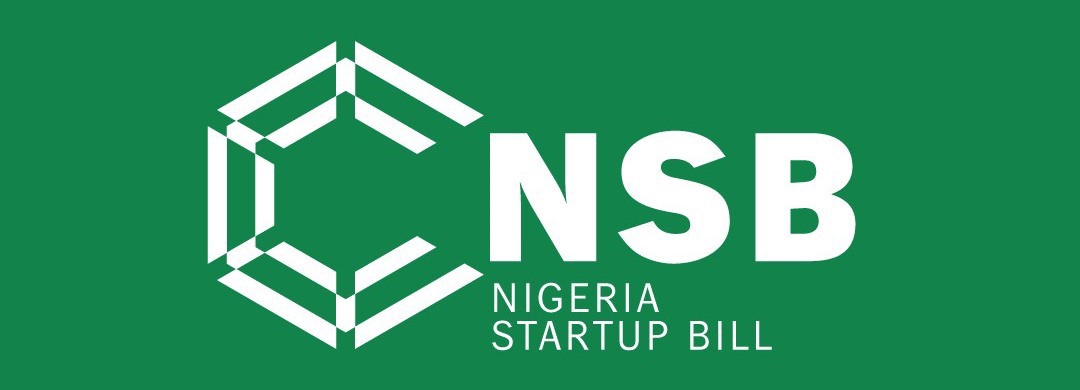
A startup bill or a startup act is a set of laws that are meant to develop, promote and strengthen the innovative and entrepreneurial ecosystem of a state or country. The official website says, “The Nigeria Startup Bill project is a joint initiative by Nigeria’s tech startup ecosystem and the Presidency to harness the potential of our digital economy through co-created regulations.” The purpose of the Nigeria Startup Bill is to ensure that the laws and regulations work for the country’s tech ecosystem. The Presidency and legislature believe this bill will contribute immensely to creating a conducive environment for startups to grow, attract and protect investments.

The first draft of the bill was produced in June 2021. In October 2021, the bill was submitted to the President, who then forwarded it to the National Assembly. However, things are looking brighter as the National Assembly approved the bill and passed it to the National Assembly in July 2022. Some states like Lagos have shown their readiness to domesticate the bill once it is passed into law at the national level. It is expected that every state In Nigeria will do the same if we want the bill to have a national impact.
A few countries worldwide have passed their versions of startup acts or bills, including the Philippines, Tunisia, Ethiopia, Senegal, and Kenya.
However, of all these countries, Nigeria’s startup bill has been touted as the most comprehensive and inclusive in tackling the challenges in the sectors. Some criteria for comparing the different startup acts are scope, incentives, enforcement, label, governance, etc.
The Major Takeaways from the Nigeria Startup Bill
Special Certificate for Startups
These days, almost every business wants to be known as a startup. This sometimes leads to problems with funding, hiring, and the rest. However, with this bill, every company that wants to be called a startup will have to be certified and obtain a certificate called the startup label. The startup label will ensure that any company without the label will not be known as a startup. Also, the bill acknowledges the need for a portal to facilitate the issuance of the startup label. This is under the mandate to create the Startup Support and Engagement Portal, which will, in addition to issuing the certificates, bridge the gap between startups and regulators.
The support and engagement portal also expressly outlines the conditions for a company to receive the startup label. Companies who successfully receive the label will be under strict obligations, and failure to comply will lead to a revocation of their startup status. One of the conditions for the certification is that a company must be a registered limited liability company and be in existence for less than 10 years from the date of incorporation.
Access to seed funds for startups
The bill will establish the Startup Investment Seed Fund, specifically for startups. The fund will provide tech and financial relief for startups. This will lead to increased access to funding and many benefits for the country. Through the grants and loans available to them, startups will be able to fund their operations.
Tax Incentives
Startups enjoy tax incentives in many countries, and the Nigeria startup bill will give the same relief to startups in Nigeria. The labeled startups will be eligible for tax incentives and relief, encouraging more funding and the set up of more companies. Also, startups with 10 employees will be eligible for percentage-based tax relief. However, this will only take effect if 60% of the employees are fresh graduates with less than three years of professional work experience or vocational programs.
Closing the gap between startups and regulatory bodies
The Nigeria startup bill facilitates regulatory support for startups by collaborating with these regulatory bodies to ensure hitch-free startup processes. The provision applies to relevant MDAs, including the Nigerian Copyright Commission, Trademarks, Patent and Design Registries, Securities and Exchange Commission, Corporate Affairs Commission, National Office for Technology Acquisition and Promotion, Nigerian Exchange Limited, and Central Bank of Nigeria.
Creating an encouraging environment for tech-based startups
This bill will provide a conducive environment for our Nigerian tech-based startups, which will, in turn, improve the ease of doing business. With a friendly tech environment and improved ease of business, the tech space will attract more talent, funding, and companies, leading to massive progress for existing startups. Also included in the bill is the provision for establishing innovation parks and hubs that will subsidize the cost of enabling workspaces, offer registration support, increase the rate of remote work, and other benefits.
Other key points in this bill include the provision for accelerator and incubator programs, creating a legal framework for startups, enhancing the training of tech talents, creating an institutional framework for startups, and positioning the Nigerian startup ecosystem to become a leading tech hub in Africa.
Conclusion
The Nigeria startup bill is a great step for the ecosystem and will directly affect all participants, from the tech blogger to the CEO, VC, or angel investor, and requires the support of all Nigerians. This bill will go as far as revolutionizing the tech industry in Africa, seeing as Nigeria has the biggest economy. When other African countries notice the huge benefits, they too will pass their startup bills which will be a major step in the right direction for creating jobs and opportunities. President Buhari will likely assent to the bill considering the bill was created by the Presidency with contributions from 3o tech leaders, including Iyin Aboyeji, Kola Aina, the minister of digital economy Isa Pantami and officials of the NITDA.
Be the first to comment